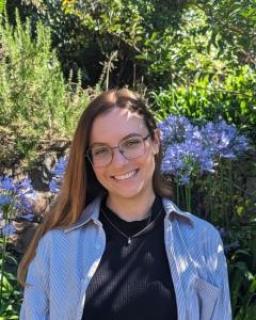
Position: Current PhD Student
School and/or Centres: Centre for Heritage and Museum Studies
As a Québécoise and Canadian woman, I possess a deep-seated passion for geography, Indigenous studies, and energy transition governance. Throughout my academic journey, I have developed a diverse range of interests, and the challenge of selecting a singular discipline led me to pursue an undergraduate degree in geography. This decision allowed me to explore the human, social, and natural sciences, while examining various issues through the lens of their relationship to territory. In 2019, as part of my master's program, I undertook a four-month research placement at the French National Institute for the Industrial Environment and Risks (INERIS). Upon my return to Québec, I was inspired to base my master's thesis on the insights I gained during that experience. My research focused on analysing the interplay between socio-territorial transformations and the implementation of the energy transition. This work highlighted how citizen participation can be an invaluable tool in ensuring coherence among various projects within the same region, especially in the context of the decentralisation of political and administrative powers as well as energy systems. Motivated to further explore these findings in an Indigenous context, I pursued doctoral studies. The aim of my doctoral research is to investigate potential avenues for decolonising the energy transition, with a focus on proposing self-determined, innovative, sustainable, and equitable projects for Indigenous communities. Consequently, geography, environmental sciences, and social sciences now serve as the foundational elements of my interdisciplinary approach.
- Governance of Energy Transition
- Socio-territorial dynamics within renewable energy systems
- Deliberative processes for energy-climate policies and projects
- Interactions among key actors in the energy transition
- Relationships between Indigenous and non-Indigenous peoples
- Environmental justice
- Intercultural collaboration for climate change adaptation